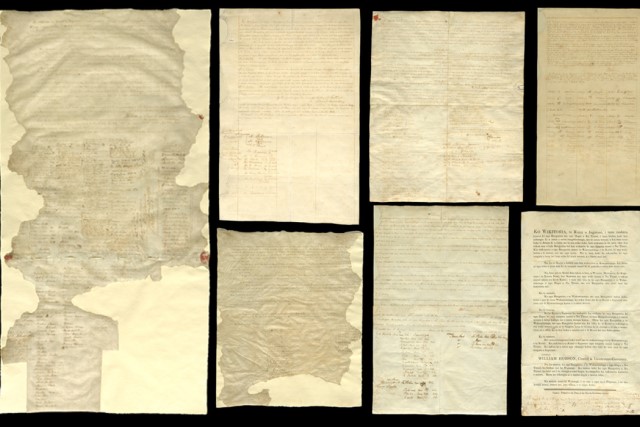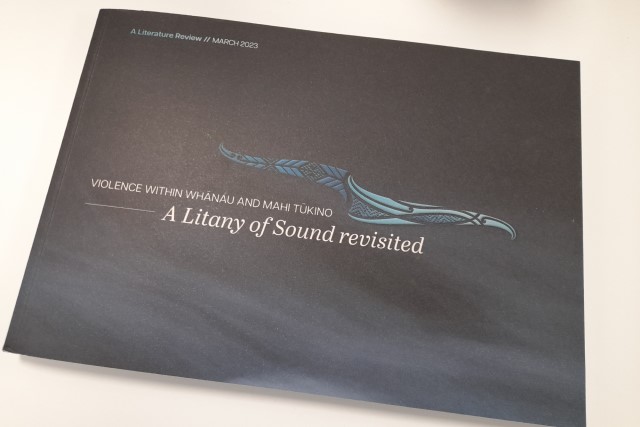Submissions open on Treaty Principles Bill; Waitangi Tribunal Report on Treaty Principles Bill released
Thu 28 Nov 2024
Submissions are open on legislation that proposes to redefine the Treaty relationship between Māori and the Crown. A Waitangi Tribunal report has found the legislation breaches treaty principles. The Treaty Principles Bill is widely opposed. Submissions are due 7 January 2025.

Submissions open on legislation to redefine the Treaty relationship
The Justice Select Committee is calling for submissions on the Principles of the Treaty of Waitangi Bill .
Submissions are due 7 January 2025.
The Principles of the Treaty of Waitangi Bill would redefine the Treaty relationship between Māori and the Crown, replacing it with 3 principles developed by the ACT Party.
Treasury provided a Regulatory Impact Statement on the draft legislation in August 2024, which found, “the status quo is more beneficial.” Their analysis includes that the draft bill is “worse than the status quo” for: upholding the Treaty; clarity and certainty; promoting social cohesion and consensus; and maintaining constitutional legitimacy. There were no criteria where the draft bill was better than the status quo.
The Treaty, colonisation and ending violence
He Waka Eke Noa was the first comprehensive study of violence centring kaupapa and mātauranga Māori. Its findings include:
- “The failure of the Crown to uphold Te Tiriti o Waitangi is highlighted in all components of the research as a structural reason that underpins the level to which whānau have been exposed to generations of violence.”
- “Transforming the impact of violence upon whānau requires approaches that are aligned to the wider notions of tino rangatiratanga and mana Motuhake.”
- “Honouring, enacting and upholding Te Tiriti o Waitangi is considered a critical part of the solution to the underlying systemic issues that sustain violence.”
- “Honouring Te Tiriti o Waitangi will begin to unlock the appropriate frameworks and models for good partnership and decision making that will support whānau wellbeing.”
The Treaty Principles Bill ignores the context of colonisation and its harm to Māori, and moves away from upholding and honouring the treaty.
The national strategy to eliminate family violence and sexual violence, Te Aorerekura, also identifies that "Violence that impacts whānau is rooted in the marginalisation of tangata whenua and societal changes enforced during the colonisation of Aotearoa."
The Strategy identifies a strong treaty relationship as a foundation for ending violence and growing toiora whānau:
“The Treaty of Waitangi |Te Tiriti o Waitangi, te ao Māori, and whānau-centred approaches are central to Te Aorerekura. They provide a unique perspective for Aotearoa New Zealand about how family violence and sexual violence can be eliminated and how safety and wellbeing can be realised for all people.”
Waitangi Tribunal Report on Treaty Principles Bill updated
The Waitangi Tribunal has released Ngā Mātāpono/The Principles: Part II of the Interim Report of the Tomokia Ngā Tatau o Matangireia – The Constitutional Kaupapa Inquiry Panel on The Crown’s Treaty Principles Bill and Treaty Clause Review Policies (2024).
The report updates the previous interim report with an additional chapter. That report found that the Treaty Principles Bill and the Crown’s agreement to support it are in breach of the treaty principles of partnership and reciprocity, active protection, good government, equity, redress, and the article 2 guarantee of rangatiratanga. The updated report adds further findings of breaches, which cause significant prejudice to Māori. The Tribunal confirmed its recommendation that the Bill be abandoned.
“the Crown’s process to develop the Bill has purposefully excluded any consultation with Māori, breaching the principle of partnership, the Crown’s good-faith obligations, and the Crown’s duty to actively protect Māori rights and interests. The Tribunal also found this policy process to be in breach of the principle of good government, as Cabinet has decided to progress the Bill despite it being a policy that is not evidence-based, has not been adequately tested, has not been consulted upon, and fails regulatory standards.”
The Tribunal also found:
- “Māori would be particularly prejudiced by the extinguishment of tino rangatiratanga in a legal sense if the Bill were to be enacted”
- “the new principles would advance the discredited agenda of assimilation”
- “Cabinet’s decision to introduce the Bill would prejudice Māori by further damaging the Māori–Crown relationship”
- “Māori would also feel the brunt of the social disorder and division caused by the introduction of the Bill.”
Widespread opposition to Treaty Principles Bill
Te Hunga Rōia Māori shared excerpts of a letter calling on the Prime Minister to abandon the Treaty Principles Bill, which they describe as “an act of bad faith and deep dishonour.” Their reasons include:
- That conversation about the Bill is divisive and misinformed, and “Māori will bear the brunt of that misinformation.”
- The Bill attempts “to reframe and minimise the guarantees made to Māori” in the Treaty.
- “Applying the new and distorted principles to the interpretation of the Treaty across all law would have the legal effect of redefining Te Tiriti itself.”
- “The Crown’s actions are not only inconsistent and contrary to the advice of their own officials (including the Ministry of Justice), the recommendations of the Waitangi Tribunal and Te Tiriti o Waitangi itself, but also other international agreements such as the United Nations Declaration on the Rights of Indigenous Peoples and the Convention on the Elimination of Racial Discrimination.”
In a letter to the Prime Minister and the Attorney-General, 42 King’s Counsel stated that the Treaty Principles Bill should be abandoned. Their reasons include:
- “By imposing a contested definition of the three articles, the Bill seeks to rewrite the Treaty itself.”
- “The Treaty Principles Bill would have the effect of unilaterally changing the meaning of te Tiriti and its effect in law, without the agreement of Māori as the Treaty partner.”
- The proposed “Principle 2” erases the Crown’s guarantee to Māori of tino rangatiratanga, and attempts to exclude the courts from deciding on questions of treaty rights.
- The proposed “Principle 3” erases the Crown’s guarantee to Māori of the right to be Māori and to have tikanga recognised in law.
- “it is not for the government of the day to retrospectively and unilaterally reinterpret constitutional treaties. This would offend the basic principles which underpin New Zealand’s representative democracy.”
- “the Treaty Principles Bill would cause significant legal confusion and uncertainty, inevitably resulting in protracted litigation and cost.”
A petition to “Stop the Treaty Principles Bill” signed by over 200,000 people was given to Hana-Rawhiti Maipi-Clarke at Parliament on 19 November 2024. The petition continues to gather signatures, attracting more than 290,000 to date.
A nationwide hīkoi mō te Tiriti opposed to the introduction of the Treaty Principles Bill attracted tens of thousands around the country, and to Wellington on 19 November 2024. A feature of the hīkoi was the diversity of participants.
Submissions and templates
Te Kāhui Tika Tangata | The Human Rights Commission publicly released its submission, which describes the Bill as “...unnecessary, unworkable and in breach of human rights and Tiriti obligations.”
Many groups have produced guides and tools to support people to write submissions on the Treaty Principles Bill. These include:
- Together for Te Tiriti list local events supporting submission writing around the motu
- Tuku Kōrero is the simplest 'submission builder' to help write and even send submissions
- Koekoeā have produced a document explaining the submissions process, and are hosting nightly workshops across social media platforms
- Together for Te Tiriti have an online tool and downloadable template for the process of writing your submission in te reo Māori or English
- ANZASW will hold a webinar “Submission writing for beginners: Equipping social workers to respond to the Treaty Principles Bill” on 11 December 2024
- Lawyer Roimata Smail has created a downloadable submission template
- Common Grace has collected resources to support faith communities to encourage and gather submissions
- Greenpeace has created a Treaty Principles Bill personal submission builder
- The Green Party has published their submission and is collecting signatures in support of it. They have also produced an online guide for writing a submission on the Bill.
NZFVC Submission
You can read the submission from NZFVC here.
Update: Maranga Mai release response to Treaty Principles Bill, Tuku Kōrero mō te Pire Takahi Tiriti
Maranga Mai, the working group towards a People’s Action Plan Against Racism in Aotearoa, has released their response to the Treaty Principles Bill, Tuku Kōrero mō te Pire Takahi Tiriti (2025). Maranga Mai were appointed by the National Iwi Chairs’ Forum. In their response they provide a definition of racism and outline the racial dimensions of the Treaty Principles Bill as well as setting several expectations for the Government’s response to this Bill.
Image: pages from Te Tiriti o Waitangi, from Te Rua Mahara o te Kāwanatanga | Archives New Zealand





